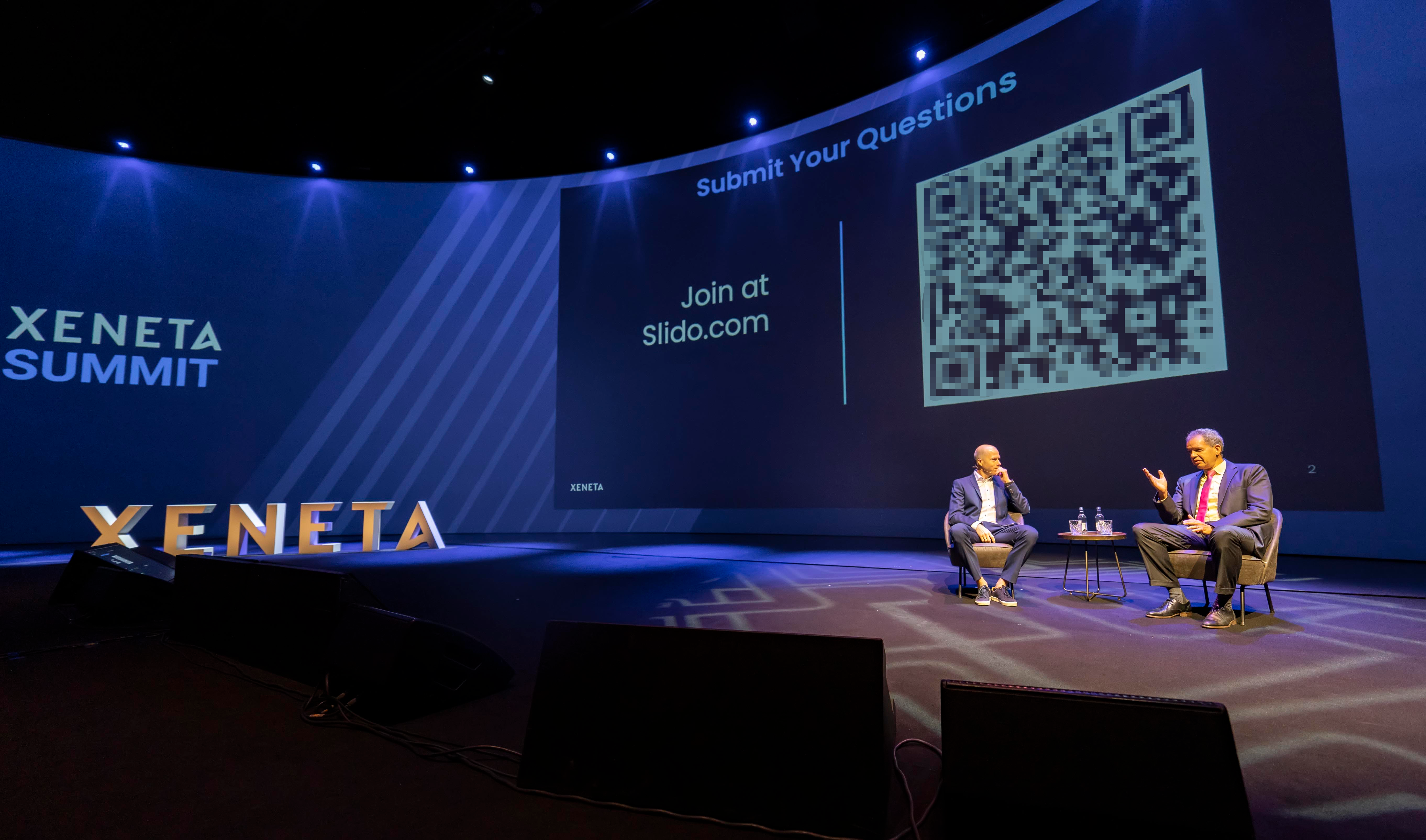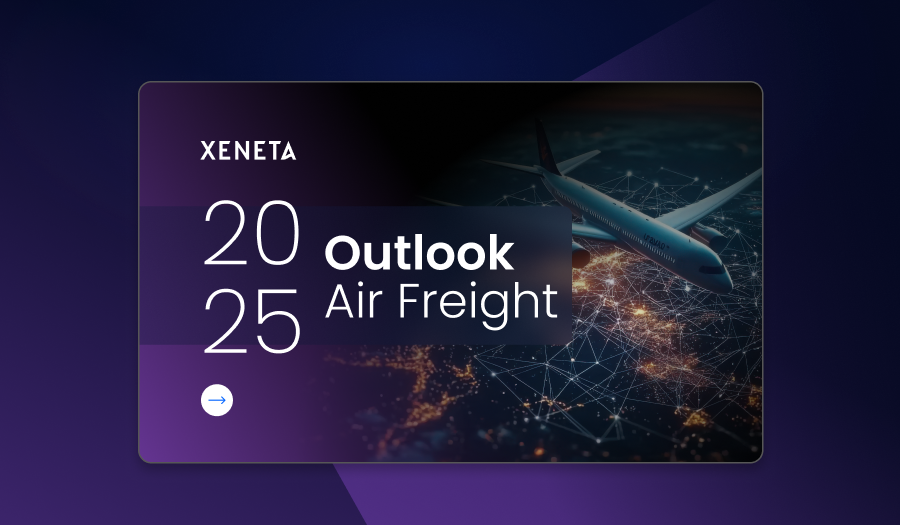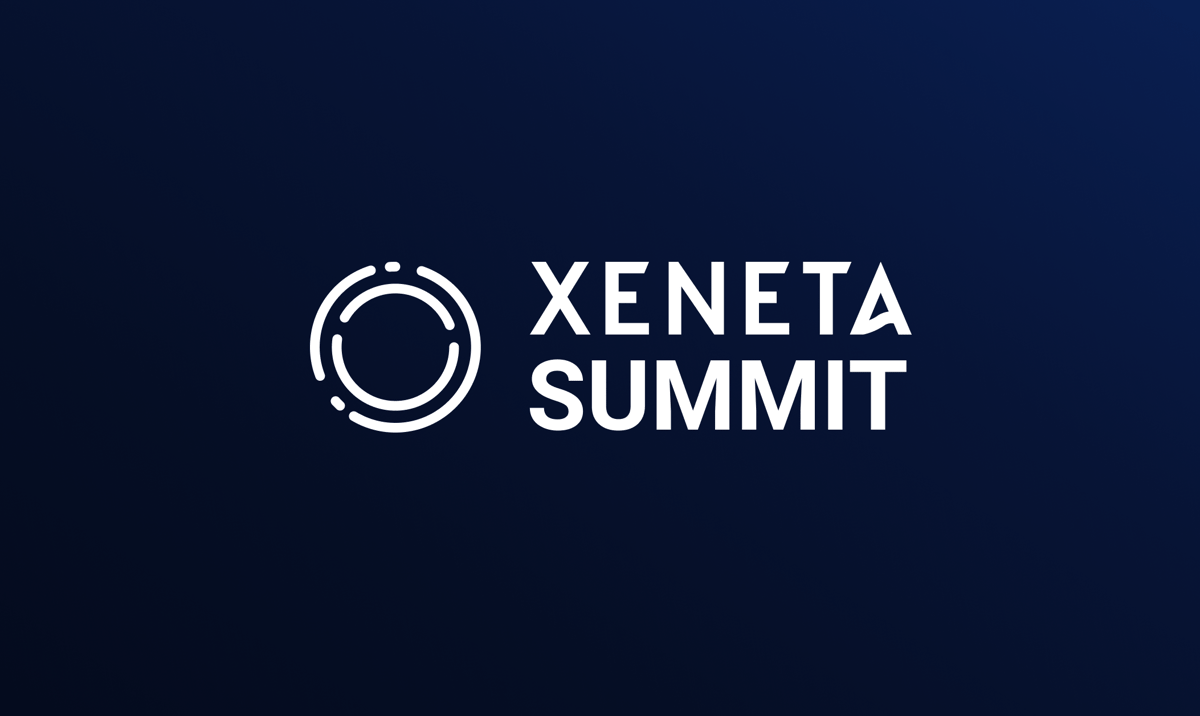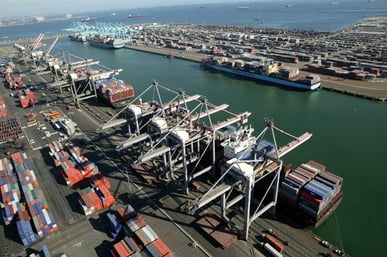AMSTERDAM, Netherlands – 26 October 2023 – The Xeneta Summit has heard the ocean freight shipping industry will find new ways of working together in the face of a volatile market.
Stanley Smulders, Director of Marketing & Commercial at Ocean Network Express (ONE), took part in a keynote Q&A with Xeneta CEO Patrik Berglund during the Summit in Amsterdam this week to discuss the major challenges facing the industry.

While there are rough seas ahead, Smulders maintains growth is still on the horizon.
He said: “The current market is at best volatile, but you must look globally and there are still trades growing and business will continue grow.
“No matter what people say, this will remain a growth industry. Every year we have a couple of hundred million new souls enter this world and they are going eat, drink and consume. As an industry we have a role to play.”
The annual Xeneta Summit sees industry leaders come together to discuss the major issues facing ocean freight shipping.
Smulders highlighted managing supply and demand as a key priority, especially with growing fleet.
He said: ‘The industry ordered a lot of ships a couple of years ago and they are coming in now, next year and year after. People will say we’ve overdone it, and possibly that’s true.
“But there are various ways to deal with this. Some current ships will be scrapped, some redeployed and we will slow-steam to control capacity.
“Why sail extra ships if the cargo isn’t there?”
In the midst of tender season for ocean freight shipping, focus during the Q&A turned to rates.
Smulders said: “Individual trade lanes will remain volatile, particularly on a short-term basis. The spot market is simple – rates may be high or low and you take it as it comes.
“But when annual deals come up and you know you’re going to lose money for the next 12 months, that’s an entirely different ball game and a lot of carriers may not want to do that.
“This is going to be the real test in the coming months – especially the Asia to Europe trade.”
Berglund posed the question whether an indexing-based pricing system could solve some of the challenges facing a volatile industry.
Smulders said: “In principle we are open to it because it saves us and the customer a lot of time haggling over freight rates – sometimes weekly.
“There’s only one ‘but’. Index linked contracts work as long as the rates go down, as soon as the rates go up, they stop working.”
Smulders agreed that an upper and lower limit in the index could provide the necessary assurance for both the shipper and carrier.
He said: “A ‘win-win’ is good in life generally. Whether it’s a private or business agreement, if there’s one winner and one loser the deal doesn’t last very long.
“That was the case in 2020-2022. I must admit I have never seen those freight rates before and it’s unlikely we will see them again. But rates will still fluctuate.”
About Xeneta
Xeneta is the leading ocean and air freight rate benchmarking and market intelligence platform transforming the shipping and logistics industry. Xeneta’s powerful reporting and analytics platform provides liner-shipping stakeholders the data they need to understand current and historical market behavior – reporting live on market average and low/high movements for both short and long-term contracts. Xeneta’s data is comprised of over 500 million contracted container and air freight rates and covers over 170,000 global ocean trade routes and over 60,000 airport-airport connections. Xeneta is a privately held company with headquarters in Oslo, Norway and regional offices in New York and Hamburg.
To learn more, please visit www.xeneta.com.



